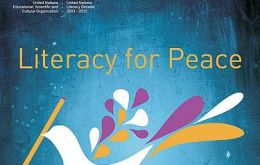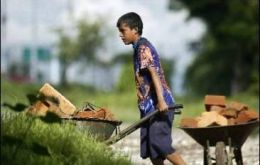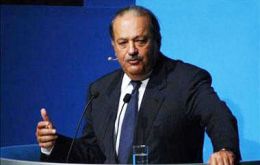MercoPress. South Atlantic News Agency
Tag: education
-
Tuesday, December 18th 2018 - 19:50 UTC
Former President Julio Argentino Roca not good enough for a Neuquén school's name

School No. 103 in the Argentine city of Neuquén Tuesday changed its name from that of two-time President “Julio Argentino Roca” to “Rosa Alaniz,” who was one of the first teachers of the institution.
-
Saturday, November 24th 2018 - 08:36 UTC
Extreme right philosopher nominated as Brazil's Education minister

Brazilian president-elect Jair Bolsonaro has chosen Ricardo Vélez Rodriguez, a Colombian professor naturalized Brazilian, to be the next Minister of Education. The late Friday announcement happened on social media and is considered a bow to the evangelical Christian backers of the elected president.
-
Thursday, October 11th 2018 - 08:31 UTC
World Bank unveils “Human Capital Index”: Singapore, South Korea, Japan and Hong Kong top of the list

The World Bank Group unveiled a new system on Thursday to rank countries based on their success in developing human capital, an effort to prod governments to invest more effectively in education and healthcare.
-
Tuesday, April 17th 2018 - 08:55 UTC
Theresa May pledges £212m in support of Commonwealth girls education

Theresa May is to call for “concrete measures” to ensure girls in Commonwealth countries spend at least 12 years in education. The prime minister will pledge £212m, which Downing Street said would allow almost one million more girls to go to school.
-
Wednesday, January 24th 2018 - 09:46 UTC
Falklands announces appointment of new Director of Education

The Falkland Islands Government has announced the appointment of Rachel Seddon as the new Director of Education for the Falkland Islands. Rachel has worked in education for the last twenty five years. In the last five years she has managed a wide curriculum at Assistant Principal level; led a sixth form college; and has been Director of Quality and Learner Support at a large London college.
-
Thursday, December 15th 2011 - 03:45 UTC
Uruguayan president and Vice-president publicly clash over education policy

The Uruguayan president and Vice president have again openly clashed this time over education reform. First Lady and Senator Lucia Topolansky described Vice-president Danilo Astori’s comments on the issue as “negative” and praised the attitude of teachers’ unions involved in the reform effort.
-
Tuesday, September 6th 2011 - 16:37 UTC
International Literacy Day: 793 million adults can neither read nor write

This year’s International Literacy Day, celebrated world-wide on 8 September, will focus on the link between literacy and peace.
-
Tuesday, June 14th 2011 - 15:12 UTC
One in six Argentine children aged 5-17 forced to work to help their families

An estimated 17.6% of Argentine children between the age of 5 and 17 living in urban areas are forced to work, according to a report from the Argentine Catholic University, UCA, released last week.
-
Wednesday, May 11th 2011 - 08:00 UTC
Chile will become first develop country in Latam, says world’s richest man

Chile will become the first developed country in Latin America, predicted Mexican communications mogul Carlos Slim, the richest man in the world, in an economic presentation given in Honduras last Thursday.
-
Tuesday, August 10th 2010 - 14:19 UTC
Since last year Chilean women are a majority in higher education and increasing

Last year was the first time that a majority – 51% - of all higher education students in Chile were women, the Education Ministry reported last week.
